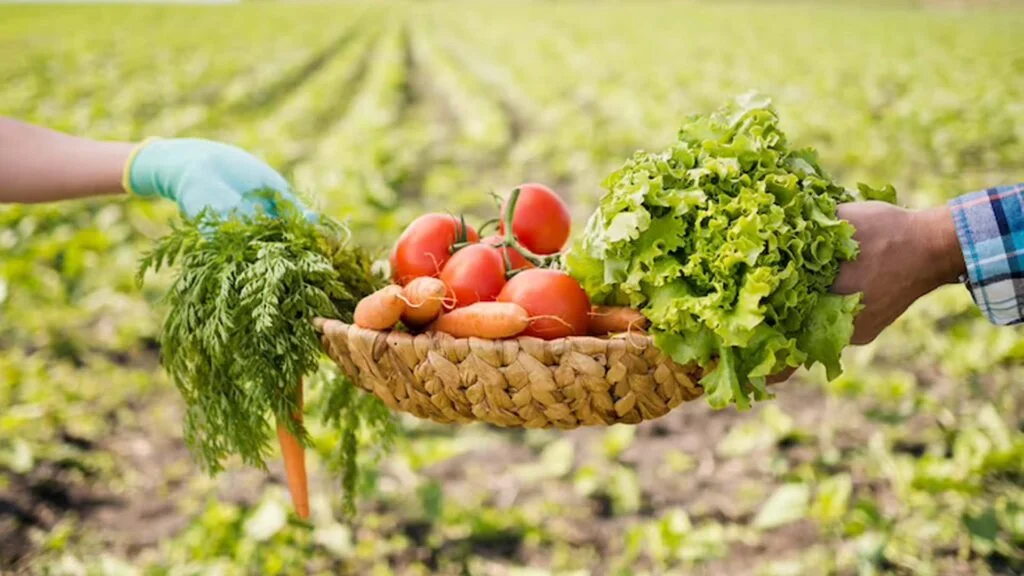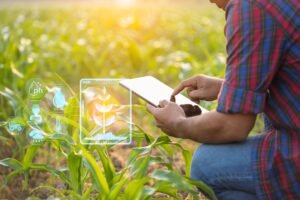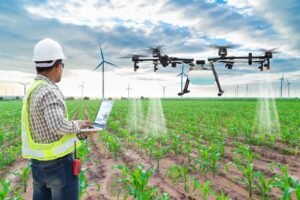The integration of Artificial Intelligence AI in agriculture is transforming the industry by enhancing productivity, sustainability, and efficiency.
As global food demands rise, AI technologies are being employed to optimize farming practices, improve crop yields, and reduce resource waste. This article explores the various applications of AI in agriculture, highlighting how these innovations are reshaping modern farming.
Key Applications of AI in Agriculture
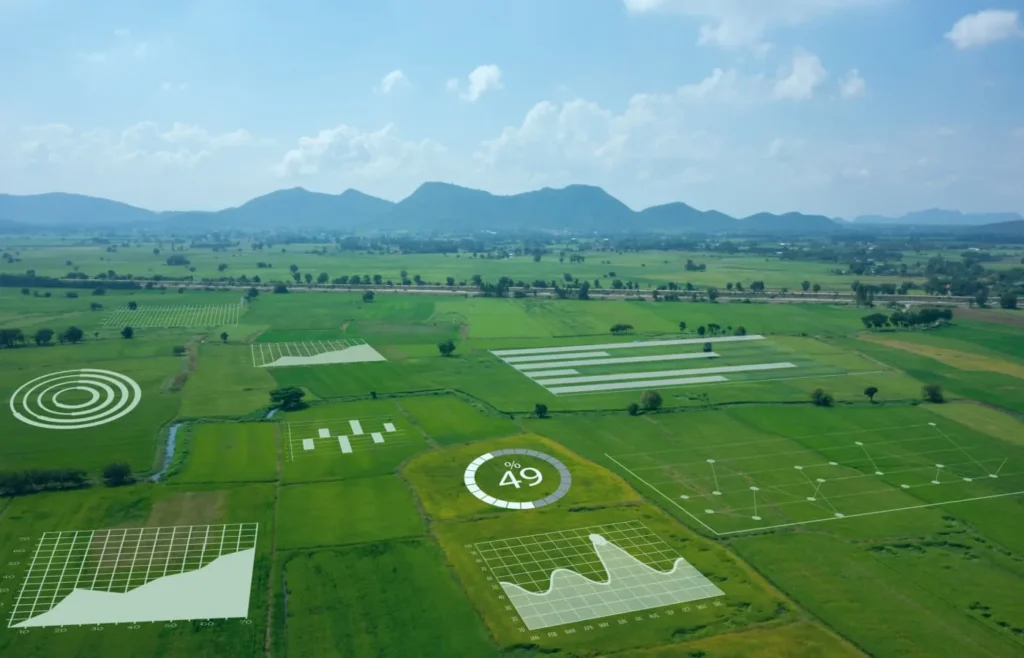
1. Precision Agriculture
AI-driven precision agriculture uses data analytics to make informed decisions about crop management. By analyzing vast amounts of data from various sources such as weather patterns, soil quality, and previous crop yields, farmers can optimize their practices.
- Data-Driven Decisions: AI in agriculture systems can identify factors affecting crop yields, such as temperature and moisture levels, allowing farmers to adjust sowing, irrigation, and fertilization practices accordingly.
- Yield Increase: Research indicates that precision agriculture can increase crop yields by 20-30% by minimizing waste and maximizing productivity 3.
2. Crop Health Monitoring
AI in agriculture technologies enable continuous monitoring of crop health through advanced imaging and sensor technologies.
- Early Disease Detection: AI-powered image recognition systems analyze crop images for signs of pests or diseases. This early detection allows farmers to take proactive measures to prevent crop damage.
- Real-Time Monitoring: Continuous monitoring with AI sensors helps identify issues in real-time, ensuring healthier crops and increased yields 4.
3. Smart Irrigation Systems
AI in agriculture enhances irrigation practices by optimizing water usage based on real-time data.
- Automated Water Management: AI algorithms analyze soil moisture levels and weather forecasts to determine the optimal irrigation schedule. This approach can reduce water usage by up to 25% while improving crop yield 3.
- Predictive Analytics: By predicting irrigation needs based on environmental conditions, farmers can ensure that crops receive adequate moisture without overwatering.
4. Crop Feeding Optimization
AI in agriculture plays a significant role in optimizing nutrient application for crops.
- Nutrient Analysis: AI algorithms can analyze soil samples to determine nutrient deficiencies and recommend specific fertilizers or amendments needed for optimal growth.
- Targeted Application: By utilizing AI for targeted nutrient application, farmers can reduce fertilizer use while enhancing crop health and yield 5.
5. Automated Machinery and Robotics
AI in agriculture is revolutionizing farming machinery through automation and robotics.
- Autonomous Tractors: AI-powered tractors equipped with GPS technology can operate autonomously, optimizing field operations while minimizing soil compaction.
- Robotic Harvesting: Automated harvesting systems utilize AI to determine the optimal time for harvesting crops based on ripeness and other factors, increasing efficiency and reducing labor costs 1.
6. Predictive Analytics for Risk Management
AI’s predictive capabilities enable farmers to manage risks associated with climate variability and pest infestations.
- Weather Forecasting: AI analyzes historical weather data alongside current conditions to provide accurate forecasts that inform planting and harvesting schedules.
- Pest Prediction: By analyzing patterns in pest behavior and environmental conditions, AI can help predict pest outbreaks, allowing farmers to take preventive actions 4.
Benefits of AI in Agriculture
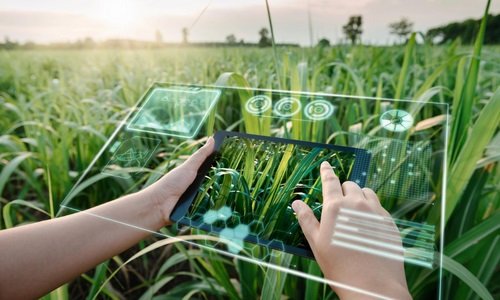
- Increased Efficiency: Automating tasks such as monitoring and irrigation reduces labor costs and increases operational efficiency.
- Sustainability: AI technologies promote sustainable practices by optimizing resource usage (water, fertilizers) and reducing chemical runoff into waterways.
- Enhanced Decision-Making: Data-driven insights empower farmers to make informed decisions that improve productivity while minimizing environmental impact.
- Improved Crop Resilience: By identifying resilient crop varieties through data analysis, AI aids in developing crops better suited to withstand extreme weather conditions and diseases 5.
Challenges in Implementing AI in Agricultural
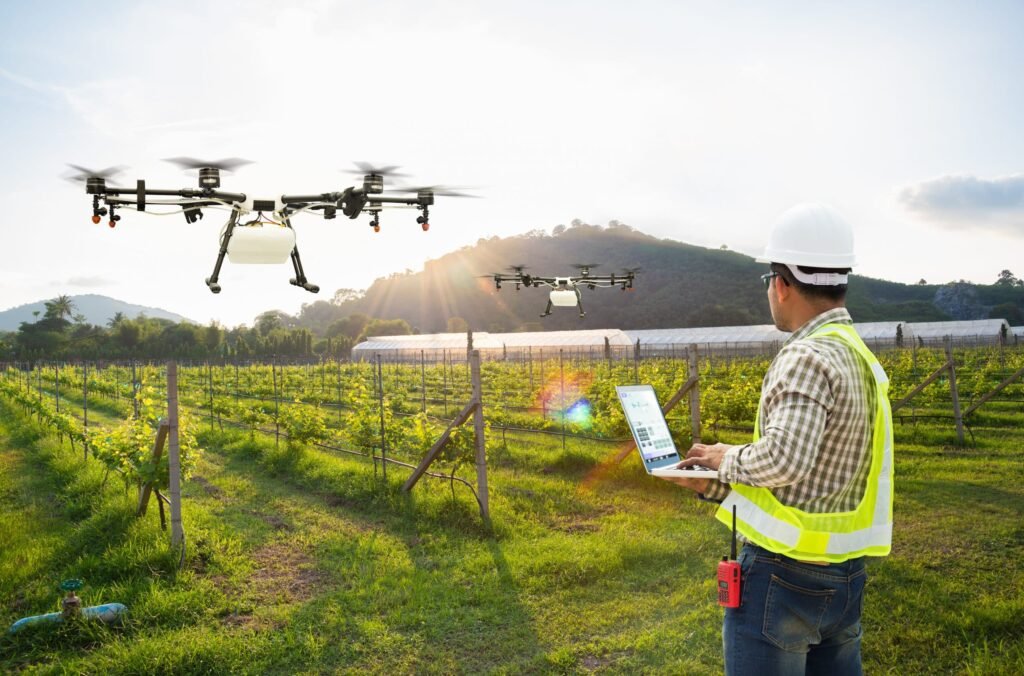
Despite the numerous benefits of AI in agriculture, several challenges exist:
- High Initial Costs: The investment required for advanced technologies may be prohibitive for smallholder farmers.
- Technical Knowledge Gap: Farmers may need training to effectively utilize AI technologies and interpret data insights.
- Data Privacy Concerns: The collection and use of agricultural data raise concerns about privacy and ownership.
Conclusion
The applications of Artificial Intelligence in agriculture are transforming the industry by enhancing productivity, sustainability, and efficiency. From precision agriculture and smart irrigation systems to automated machinery and predictive analytics, AI technologies are enabling farmers to optimize their operations while addressing global food security challenges. As the agricultural sector continues to evolve, embracing these innovations will be essential for building resilient farming systems that benefit both producers and the environment. Call to Action: Stay informed about advancements in agricultural technology—consider integrating AI solutions into your farming practices or supporting local initiatives focused on sustainable agriculture!
Q&A Section
Q: How does AI improve crop health monitoring?
A: AI utilizes image recognition technology to analyze crop images for early signs of disease or pest infestations, enabling timely interventions.
Q: Can AI help reduce water usage in agriculture?
A: Yes! Smart irrigation systems powered by AI optimize water application based on real-time soil moisture data and weather forecasts.
Q: What are some examples of automated machinery using AI?
A: Examples include autonomous tractors that operate with GPS technology and robotic harvesters that determine the best time for harvesting crops.
Resources


